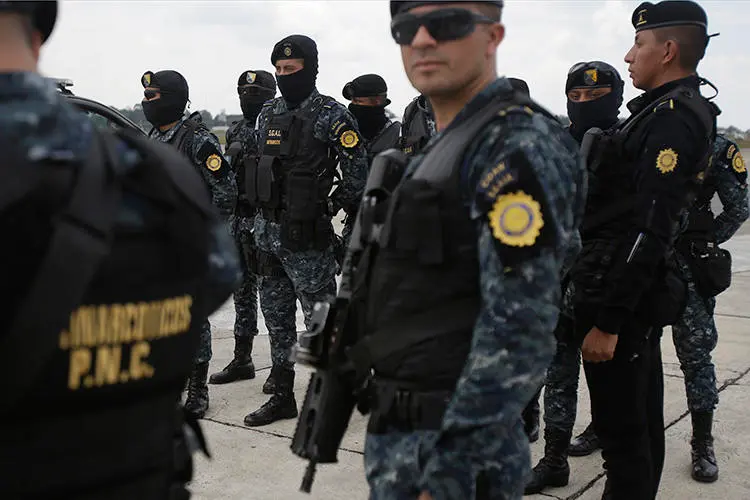Amsterdam, September 30, 2019 — Guatemalan authorities should refrain from conducting raids on news outlets and allow the Xyaab’ Tzuultaq’a radio station to report freely, the Committee to Protect Journalists said today.
On September 26, police officers accompanied by soldiers from the nation’s army and officials from the Public Ministry raided the offices of Mayan community radio station Xyaab’ Tzuultaq’a, in El Estor, in Guatemala’s eastern Izabal department, according to news reports.
Izabal, along with five other departments, has been the subject of intense police and military activity since the nation’s Congress declared a state of siege on September 7, thereby suspending constitutional freedoms such as the rights of assembly and protest, after several soldiers were killed by suspected drug traffickers, according to a report by Reuters.
Soon after the state of siege began, the staff of Xyaab’ Tzuultaq’a removed equipment and documents from the radio station’s office in anticipation of a police raid, according to the station’s director, Robin Macloni, who spoke to CPJ via phone. No one was present in the station at the time of the raid and police did not appear to have confiscated anything, Macloni said.
“It is deeply concerning that Guatemalan authorities are harassing and seeking to silence vital sources of information for citizens living under this restrictive state of siege. The right to inform must always be respected,” said CPJ Central and South America Program Coordinator Natalie Southwick in New York. “Guatemalan police should provide an official explanation for their raid on Xyaab’ Tzuultaq’a, and allow them and other media in the region to work safely and without obstruction.”
Xyaab’ Tzuultaq’a has not transmitted on its FM frequency since the state of siege began, Macloni said, but it is still broadcasting daily programming on its website. Xyaab’ Tzuultaq’a is a community-based outlet that broadcasts in Maya Qʼeqchiʼ, the language spoken by many of Izabal’s residents, promotes indigenous traditions and knowledge, and also reports on news about the region, according to Macloni.
The radio station shares an office with a legal services organization, which was also raided by authorities, Macloni said, adding that Guatemalan officials have not made any official statement explaining the reasons behind the raids.
According to Macloni, the state of siege has been used as a mechanism to suppress local media. “They are using it as an instrument, in our case, to censor us. The vulnerable situation of journalists and social communicators is quite concerning,” he said.
CPJ repeatedly called the Public Ministry and the Guatemalan police at the numbers listed on their official websites for comment, but did not receive any responses.
